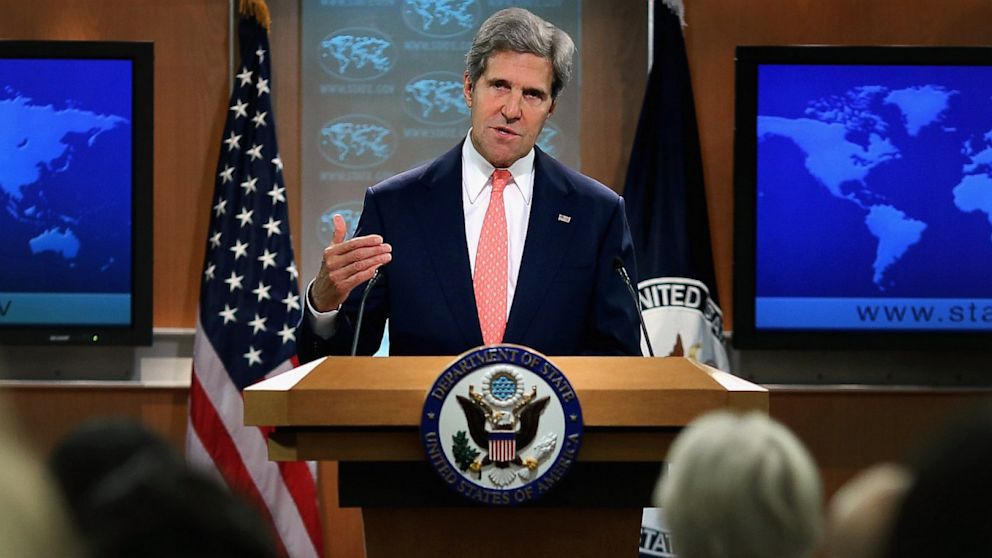The New York Times reports “Prime Minister David Cameron said Britain would propose a resolution at the United Nations on Wednesday” on military force in Syria.
PHYLLIS BENNIS, pbennis at ips-dc.org
A fellow at the Institute for Policy Studies, Bennis is author of Calling the Shots: How Washington Dominates Today’s UN. She just wrote the piece “Moral Obscenities in Syria” for The Nation and appeared on both “Democracy Now!” and The Real News this morning.
GARETH PORTER, porter.gareth50 at gmail.com, @GarethPorter
Porter is an investigative journalist and historian specializing in U.S. national security policy. He just wrote the piece “In Rush to Strike Syria, U.S. Tried to Derail UN Probe” for Inter Press Service, which states: “After initially insisting that Syria give United Nations investigators unimpeded access to the site of an alleged nerve gas attack, the administration of President Barack Obama reversed its position on Sunday and tried unsuccessfully to get the UN to call off its investigation. …
 “In his press appearance Monday, Secretary of State John Kerry, who intervened with UN Secretary-General Ban Ki-Moon to call off the investigation, dismissed the UN investigation as coming too late to obtain valid evidence on the attack that Syrian opposition sources claimed killed as many 1,300 people.
“In his press appearance Monday, Secretary of State John Kerry, who intervened with UN Secretary-General Ban Ki-Moon to call off the investigation, dismissed the UN investigation as coming too late to obtain valid evidence on the attack that Syrian opposition sources claimed killed as many 1,300 people.
“The sudden reversal and overt hostility toward the UN investigation, which coincides with indications that the administration is planning a major military strike against Syria in the coming days, suggests that the administration sees the UN as hindering its plans for an attack.
“Kerry asserted Monday that he had warned Syrian Foreign Minister Walid al-Moallem last Thursday that Syria had to give the UN team immediate access to the site and stop the shelling there, which he said was ‘systematically destroying evidence.’ He called the Syria-UN deal to allow investigators unrestricted access ‘too late to be credible.’ …
“Despite the U.S. effort to portray the Syrian government policy as one of ‘delay,’ the formal request from the United Nations for access to the site did not go to the Syrian government until Angela Kane, UN High Representative for Disarmament Affairs, arrived in Damascus on Saturday, as Ban’s spokesman, Farhan Haq, conceded in a briefing in New York on Tuesday.
“Syrian Foreign Minister Moallem said in a press conference Tuesday that Syria had not been asked by the United Nations for access to the East Ghouta area until Kane presented it on Saturday. Syria agreed to provide access and to a ceasefire the following day.
“Haq sharply disagreed with the argument made by Kerry and the State Department that it was too late to obtain evidence of the nature of the Aug. 21 incident.
“‘Sarin can be detected for up to months after its use,’ he said.
“Specialists on chemical weapons also suggested in interviews with Inter Press Service that the UN investigating team, under highly regarded Swedish specialist Ake Sellstom and including several experts borrowed from the Organization for the Prevention of Chemical Weapons, should be able to either confirm or disprove the charge of an attack with nerve or another chemical weapon within a matter of days.”
MATTHEW R. LEE, Matthew.Lee at innercitypress.com, @innercitypress
Lee covers the UN for Inner City Press.
JAMES PAUL, james.paul.nyc at gmail.com
Author of Syria Unmasked, until recently Paul was executive director of Global Policy Forum, a think tank that monitors the UN.